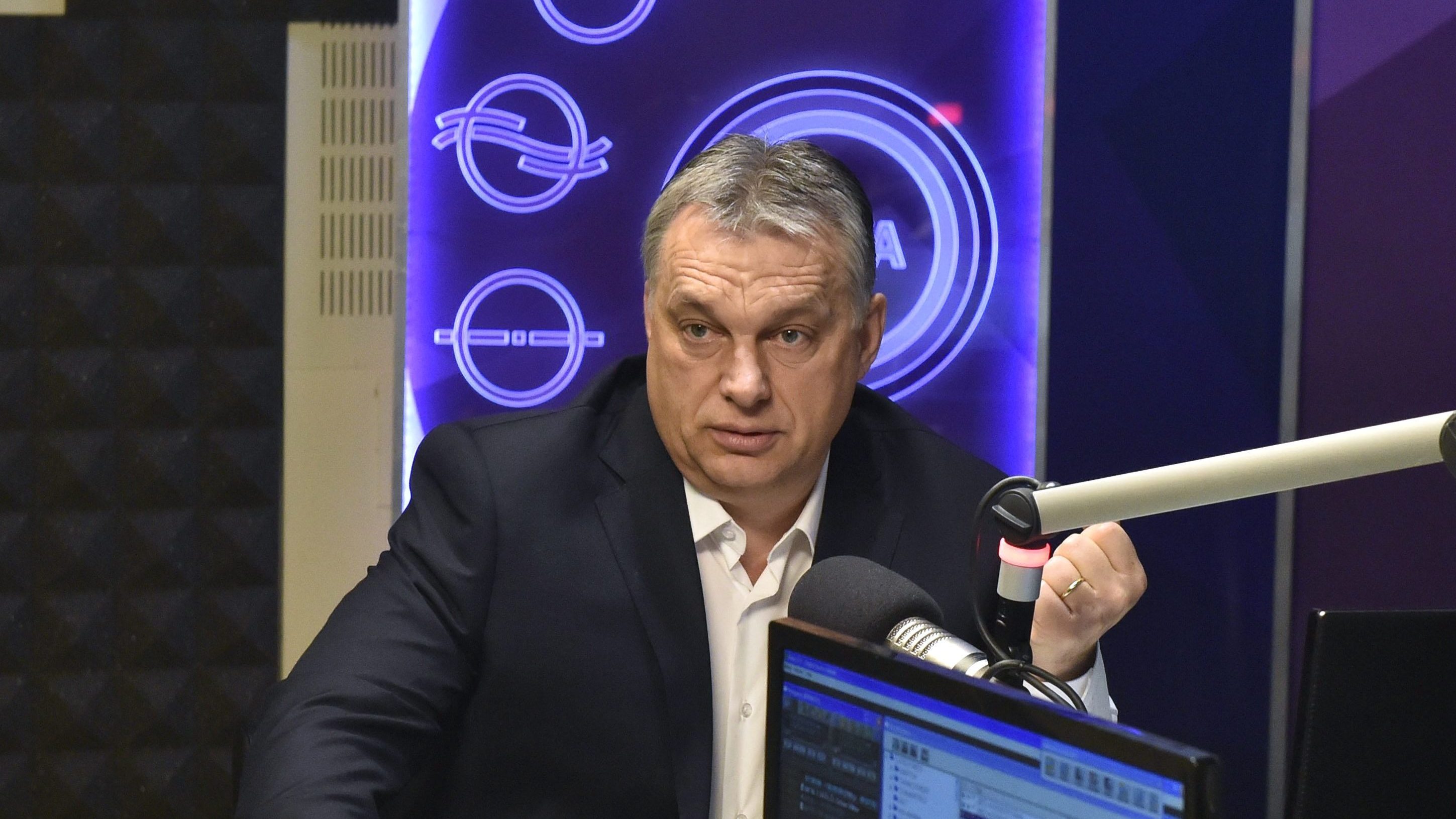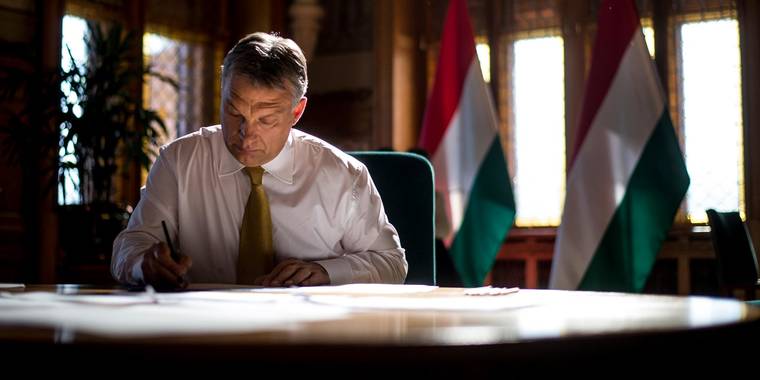
The Prime Minister said that these documents show that the Soros network’s members are active in Brussels, seeking “to condemn and stigmatise the Hungarian government, whose position on the immigration issue is opposed to that of Soros’s people, and to force Hungary to change its migrant policy”.
Mr. Orbán said that, with the involvement of Hungary’s national security services, the wider public must be informed about the “Soros network”, which is attempting to influence life in Europe. Such revelations, he said, would enable Hungarian people to find out what is actually happening, who is seeking to influence their lives, and why and how they are doing it. He noted that it is also important to identify those Hungarians who, operating from Hungary, are prepared to cooperate with the network in this process.
The interviewer observed that Hungary’s European Commissioner Tibor Navracsics has said that there is no “Soros Plan”, and asked the Prime Minister who is collaborating with the network. Mr. Orbán replied: “You see, not even he knows – so this is yet another argument for finding out”.
The Prime Minister said that the recently released documents show that “the Soros Empire” has a list of more than two hundred Members of the European Parliament (MEPs) whom the network regards as friends.
They are also seeking out MEPs who are prepared to take part in the implementation of a plan to create a Europe with a mixed population, he said, adding that several such people – Hungarians among them – sit on the Committee on Civil Liberties, Justice and Home Affairs of the European Parliament (LIBE). This, Mr. Orbán said, is the body that recently drafted “the European Parliament proposal needed to create a mixed Europe”.
Citing the leaked documents, he said that Soros organisations are also being mobilised to discredit Hungarian politicians.
With regard to last week’s EU summit in Brussels, he said that for a year or eighteen months he has been struggling to ensure that, at the end of prime ministers’ meetings, no documents are adopted on Europe’s future asylum policy which include elements that could violate Hungarian sovereignty. He added that there was enormous pressure on him to agree to a compromise on the migrant issue and to consent to the mandatory quotas. He said that he rejected these attempts, however, and it was agreed to deal with issues related to the immigration system again in December and in the first half of next year.
In the meantime, however, “there is a rustle in the bushes”, the Prime Minister remarked, as LIBE has already drafted the core principles on which it will seek to build European immigration policy.
Mr. Orbán confirmed that the Hungarian position is that only a Member State itself can have the right to decide who lives within its borders. If a country no longer has that authority, he said, then it is finished. “If at some point we get to a stage at which people in Berlin or Brussels have the authority to tell us who can live in the territory of Hungary, that would mean that we are subjects of Berlin or Brussels”, he warned. He declared this to be unacceptable, adding that “once a gap is opened in the wall, the water will flood in”.
In his opinion, there are two groups of countries in the EU: one group forms the “migrant-free zone” of Central Europe, while the other is the group of immigrant countries. He believes that it is inconceivable that one group should force its ideas on the other, and therefore the question is how the two groups should live alongside each other.
He also spoke about the current national consultation in Hungary, which he sees as important, as it enables people to state their opinions, and means that “We Hungarians may all slowly but surely find a common denominator, and once we have found it, we may be able to assert our interests”.
He also spoke about last week’s meeting between Jean-Claude Juncker, President of the European Commission, and the leaders of the Visegrád countries (V4). He described the meeting as being “European”, and said that “The atmosphere in Brussels has a strong whiff of the somewhat elitist culture […] of old governments or royal courts”.
The V4 were in complete agreement on all the issues on the agenda, with the migrant issue being the highest-profile topic, he said. He added that Jean-Claude Juncker remarked that at times he finds it unfair that Brussels is blamed even for things that it is not responsible for. The President had asked for cooperation, said Mr. Orbán, who told him that “we would like more respect”.
Mr. Orbán also spoke about the issue of posted workers, pointing out that the other day he had received a call from French president Emmanuel Macron, from whom he had asked for a guarantee for Central European hauliers. He had requested this because “if we are not careful, our hauliers will find themselves at a disadvantage” in competition with Western European haulage companies. However, these guarantees have not been granted, he said, and therefore “we must protect the interests of Hungarian hauliers”.
Commenting on the results of the Czech and Austrian elections, the Prime Minister said that voters in those countries gave mandates to people who are “very similar” to the current V4 leaders, and who “sing from the same hymn-sheet” on the issue of immigration. In other words, he said, the countries which reject migration have been strengthened by the results of these elections.
He also noted that Slovakia is the only V4 member in the eurozone, and if the latter is seen as the core of the EU, Slovakia is undoubtedly part of it, and adopting its policies accordingly.
